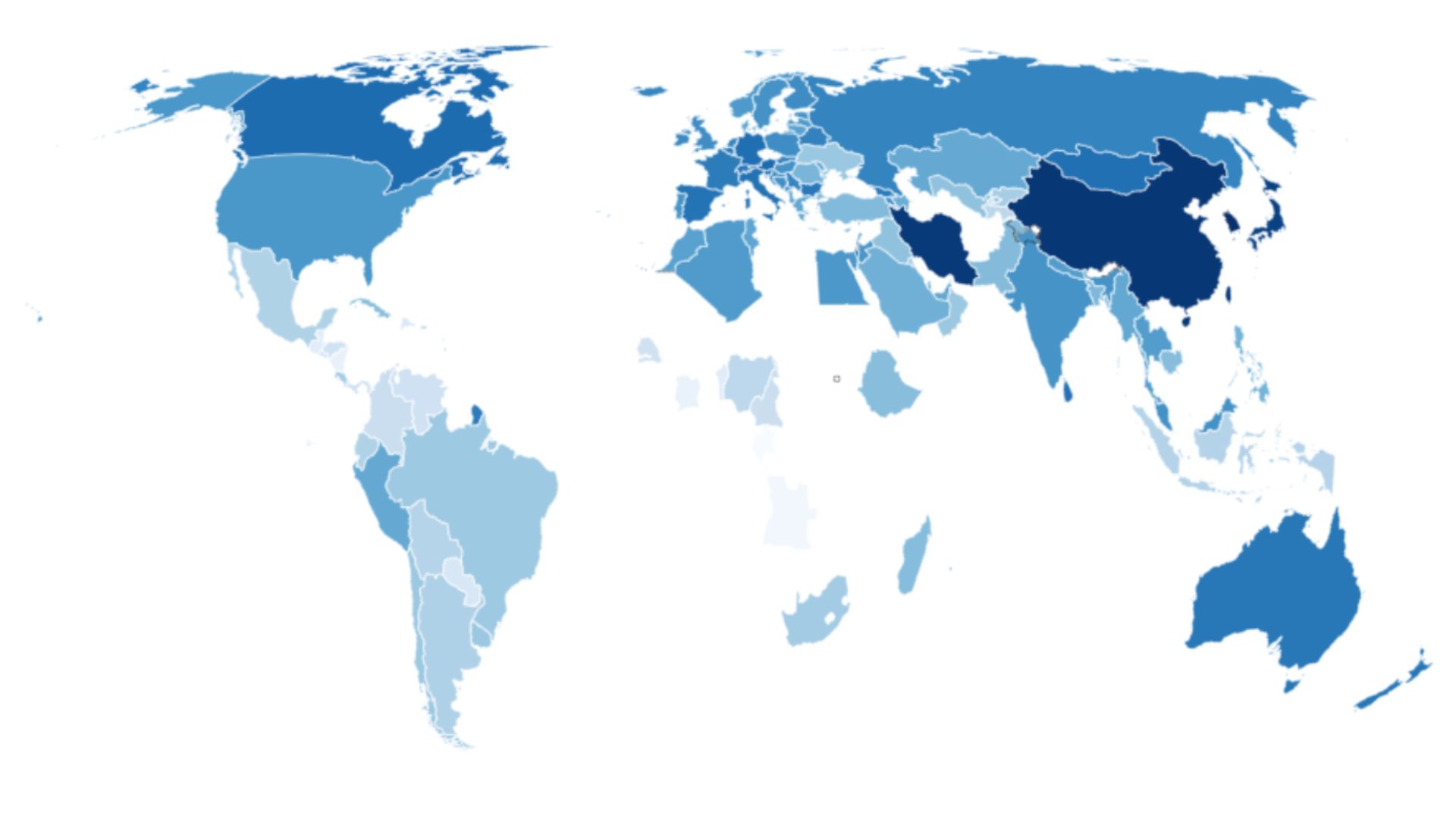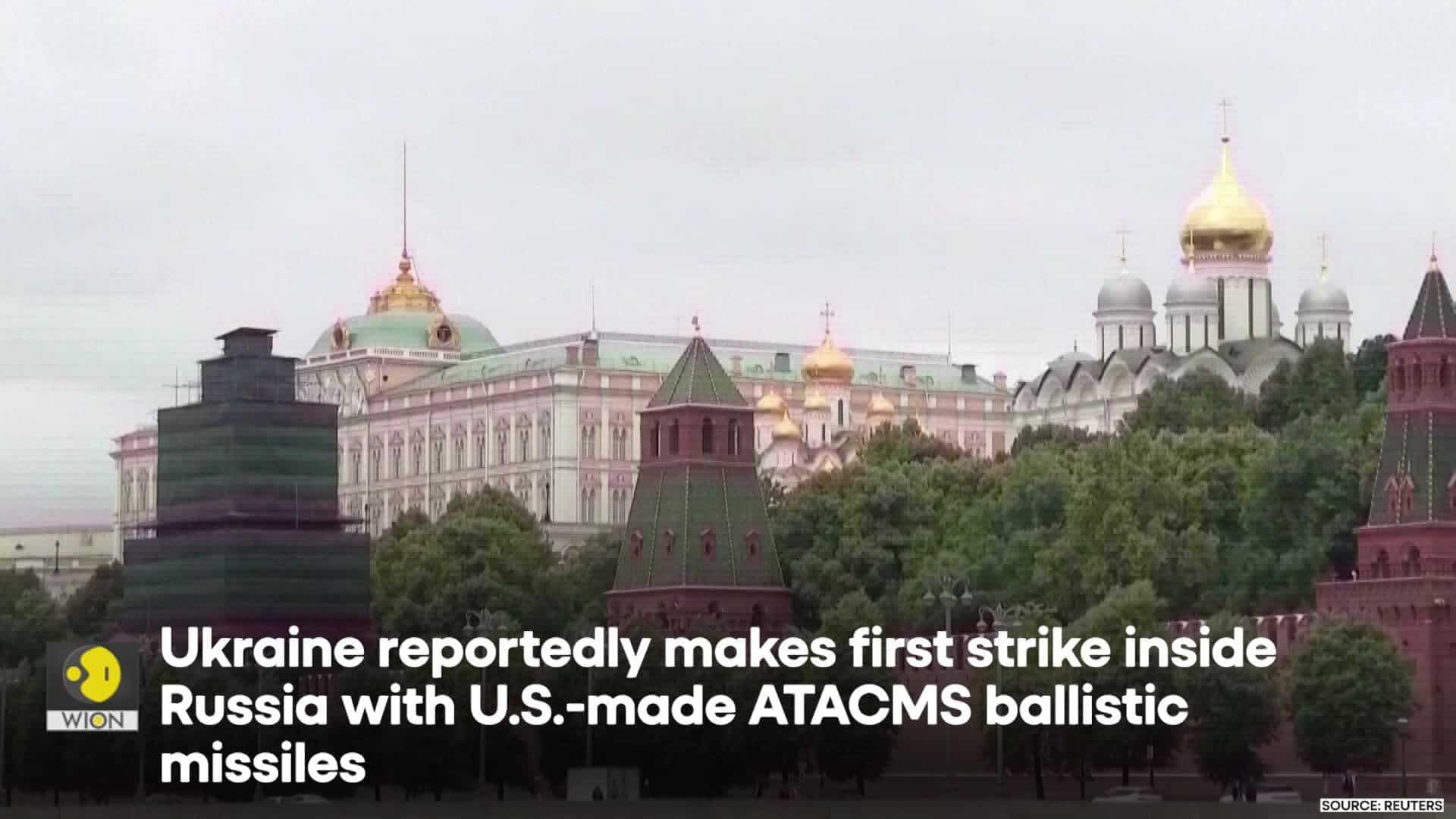Navigation
Install the app
How to install the app on iOS
Follow along with the video below to see how to install our site as a web app on your home screen.

Note: this_feature_currently_requires_accessing_site_using_safari
More options
You are using an out of date browser. It may not display this or other websites correctly.
You should upgrade or use an alternative browser.
You should upgrade or use an alternative browser.
MilitaryPedia - Worldwide Defense Forums
Latest Unread Posts
-
-
-
-
MiddleEast/Africa Israel kills Indian army brigadier
- Latest: Krishna with Flute
-
[🇮🇳] Rs 21,700 Crore War Machine: Project Kusha To Redefine India's Air And Naval Supremacy
- Latest: Krishna with Flute
-
-
South Asia India's beautiful architect. Temples, Palaces, Stepwells, Monuments, Sculptures etc.
- Latest: Krishna with Flute
-
-
-
-
General Science of genetics: Extreme variations in characteristics
- Latest: Bagheera0084
-
-
-
-
-
-
-
-
-
-
-
-
-
-
-
-
-
-
-
-
-
-
-
-
-
-
-
-
-
South Asia More opportunities for Pravin Sawhney to make money by peddling fake analysis
- Latest: Krishna with Flute
-
-
-
-
-
-
-
-
-
-
[🇮🇳] AMCA- India's state of art 5.5 generation aircraft- Tracking the development.
- Latest: Krishna with Flute
-
-
-
-
[🇧🇩-Airforce] Lalmonirhat Air Base---A Nightmare for India
- Latest: Krishna with Flute
-
-
-
-
-
-
-
-
-
-


[🇵🇰] Imran Khan's Return - November 24th Rally Updates
- By RayKalm
- Pakistani Siasat/Politics
- 114 Replies
Pakistan government doubles down on preventing Imran Khan’s Nov. 24 protest
ISLAMABAD: Pakistan’s Interior Minister Mohsin Naqvi on Friday vowed to implement the Islamabad High Court’s (IHC) order, refusing to allow former prime minister Imran Khan’s Pakistan Tehreek-e-Insaf (PTI) party to stage the Nov. 24 protest in the federal capital demanding his release.
World Global IQ updated
- By Lulldapull
- World Affairs
- 8 Replies
I thought this is a real eye opener from Newsweek. I'm not surprised though:

 www.newsweek.com
www.newsweek.com
@Sharma Ji @Vsdoc @Dogun18 @PakistanProud @Krishna with Flute @FullNight2381 @Bagheera0084 @Ghazi52

Map shows which countries have the highest IQs
Within the U.S., Massachusetts was found to have the highest average IQ out of all the states, with an average of 104.3.
@Sharma Ji @Vsdoc @Dogun18 @PakistanProud @Krishna with Flute @FullNight2381 @Bagheera0084 @Ghazi52
World Kenya drops over $2.5 billion of Adani deals after US indictment
- By Dogun18
- World Affairs
- 12 Replies
NAIROBI, Nov 21 (Reuters) - Kenyan President William Ruto said on Thursday he had ordered the cancellation of a procurement process that had been expected to award control of the country's main airport to India's Adani Group after its founder was indicted in the United States.
Under the proposed deal worth nearly $2 billion, the Adani Group was to add a second runway at the Jomo Kenyatta international airport and upgrade the passenger terminal in exchange for a 30-year lease.
[🇮🇱] Israel Is Building a Master Plan to take over the USA & The Western World to become the Next Superpower
- By Dogun18
- Israel Defense Forum
- 6 Replies
Israel's Ambitious Vision: A Master Plan for Global Influence
In recent years, discussions surrounding Israel's strategic ambitions have intensified, leading to provocative assertions such as "Israel is building a master plan to take over the USA and the Western world to become the next superpower." While such claims may seem sensational, they reflect a growing concern about geopolitical dynamics and the influence of nation-states on global affairs.
Strategic Alliances and Military Might
Israel has long been recognized for its robust military capabilities and strategic alliances, particularly with the United States. The U.S. provides significant military aid, enabling Israel to maintain a technological edge in defense systems. This relationship has fostered a collaborative defense framework that extends beyond mere bilateral agreements; it includes intelligence sharing and joint military exercises. As Israel continues to strengthen its defense posture, it inherently increases its influence over Western nations, particularly in matters related to security and counter-terrorism.
Economic Innovations and Cybersecurity
Furthermore, Israel is often dubbed the "Start-Up Nation" due to its thriving tech ecosystem and innovations in fields such as cybersecurity, artificial intelligence, and defense technologies. The country's ability to innovate has drawn the attention of global investors, including those from the U.S. and Europe, thereby enhancing its economic clout. Israel's advancements in cybersecurity, especially, position it as a crucial ally for Western nations facing cyber threats from adversaries.
Cultural and Diplomatic Outreach
In addition to military and economic strategies, Israel has engaged in cultural and diplomatic outreach aimed at shaping public perception and garnering support. Initiatives that promote Israeli culture, innovation, and democratic values resonate with Western audiences, helping to create a favorable image of Israel as a partner rather than a competitor.
While the idea of Israel overtaking the USA and the Western world may be exaggerated, it underscores a complex interplay of military, economic, and cultural factors that contribute to Israel's growing influence on the global stage. As we navigate this multifaceted geopolitical landscape, it is essential to critically assess these dynamics and understand their implications for global power shifts.
Israel and Its Global Impact: A Critical Examination
The geopolitical landscape surrounding Israel is fraught with contention and complex narratives. Several major talking points highlight the ongoing debate regarding Israel's actions and their implications for global relations, particularly with the Western world.
Discontent Among Global Populations
Supporting Israel has become a polarizing issue. Many argue that this support leads to widespread dislike from various global communities, particularly in the Middle East. The perception that Western nations blindly back Israel often fuels resentment and anti-Western sentiment, suggesting that such support may ultimately be counterproductive.
Allegations of Human Rights Violations
Critics assert that Israel is committing acts against the Palestinian and Lebanese populations, as well as its own Muslim citizens. These actions are seen as violations of human rights, resulting in significant humanitarian crises. This perspective emphasizes the moral implications of continued support for Israel amidst accusations of oppression and violence.
Influence Over U.S. Politics
The claim that Israel wields considerable influence over U.S. politics through organizations like AIPAC (American Israel Public Affairs Committee) is widespread. Detractors argue that this influence enables Israel to control narratives and policies that align with its interests, potentially leading to scenarios where the U.S. is positioned to act in favor of Israeli agendas.
Economic Repercussions
Instances like the boycott of Western products following Israel's military actions against groups like Hezbollah indicate a growing trend among Middle Eastern consumers to turn toward alternatives, such as Chinese products. This shift represents not only a rejection of Israeli policies but also a significant economic threat to Western markets, which could be perceived as part of a larger strategy to undermine Western influence.
Cybersecurity and Espionage Concerns
Israel's use of advanced spyware—such as Pegasus—raises serious ethical questions. Reports of surveillance on social media platforms and personal devices to gather intelligence or carry out targeted assassinations reflect a willingness to exploit technological advantages for geopolitical gains, often at the expense of privacy and civil liberties.
Military Might and Nuclear Capabilities
As a military powerhouse with nuclear weapons, Israel possesses the capability to strike decisively when it deems necessary. This military strength, combined with its strategic alliances, places Israel in a unique position within global politics, enabling it to exert influence over international relations.
Geopolitical Manipulation
Some critics suggest that Israel seeks to instigate conflict among the world's three superpowers—Russia, China, and the USA—by leveraging its global networks and alliances. This assertion posits that Israel aims to create chaos and instability, allowing it to capitalize on the ensuing power vacuum.
Conclusion: The Future of Western Support
The argument that supporting Israel leads to tangible benefits for Western nations is increasingly challenged. As public sentiment shifts and boycotts against Western companies become more prevalent, the narrative suggests that Israel's actions may ultimately contribute to the decline of Western influence rather than its preservation. The complex interplay of military, economic, and diplomatic factors raises critical questions about the future of global alliances and the ethical considerations surrounding support for Israel.
In recent years, discussions surrounding Israel's strategic ambitions have intensified, leading to provocative assertions such as "Israel is building a master plan to take over the USA and the Western world to become the next superpower." While such claims may seem sensational, they reflect a growing concern about geopolitical dynamics and the influence of nation-states on global affairs.
Strategic Alliances and Military Might
Israel has long been recognized for its robust military capabilities and strategic alliances, particularly with the United States. The U.S. provides significant military aid, enabling Israel to maintain a technological edge in defense systems. This relationship has fostered a collaborative defense framework that extends beyond mere bilateral agreements; it includes intelligence sharing and joint military exercises. As Israel continues to strengthen its defense posture, it inherently increases its influence over Western nations, particularly in matters related to security and counter-terrorism.
Economic Innovations and Cybersecurity
Furthermore, Israel is often dubbed the "Start-Up Nation" due to its thriving tech ecosystem and innovations in fields such as cybersecurity, artificial intelligence, and defense technologies. The country's ability to innovate has drawn the attention of global investors, including those from the U.S. and Europe, thereby enhancing its economic clout. Israel's advancements in cybersecurity, especially, position it as a crucial ally for Western nations facing cyber threats from adversaries.
Cultural and Diplomatic Outreach
In addition to military and economic strategies, Israel has engaged in cultural and diplomatic outreach aimed at shaping public perception and garnering support. Initiatives that promote Israeli culture, innovation, and democratic values resonate with Western audiences, helping to create a favorable image of Israel as a partner rather than a competitor.
While the idea of Israel overtaking the USA and the Western world may be exaggerated, it underscores a complex interplay of military, economic, and cultural factors that contribute to Israel's growing influence on the global stage. As we navigate this multifaceted geopolitical landscape, it is essential to critically assess these dynamics and understand their implications for global power shifts.
Israel and Its Global Impact: A Critical Examination
The geopolitical landscape surrounding Israel is fraught with contention and complex narratives. Several major talking points highlight the ongoing debate regarding Israel's actions and their implications for global relations, particularly with the Western world.
Discontent Among Global Populations
Supporting Israel has become a polarizing issue. Many argue that this support leads to widespread dislike from various global communities, particularly in the Middle East. The perception that Western nations blindly back Israel often fuels resentment and anti-Western sentiment, suggesting that such support may ultimately be counterproductive.
Allegations of Human Rights Violations
Critics assert that Israel is committing acts against the Palestinian and Lebanese populations, as well as its own Muslim citizens. These actions are seen as violations of human rights, resulting in significant humanitarian crises. This perspective emphasizes the moral implications of continued support for Israel amidst accusations of oppression and violence.
Influence Over U.S. Politics
The claim that Israel wields considerable influence over U.S. politics through organizations like AIPAC (American Israel Public Affairs Committee) is widespread. Detractors argue that this influence enables Israel to control narratives and policies that align with its interests, potentially leading to scenarios where the U.S. is positioned to act in favor of Israeli agendas.
Economic Repercussions
Instances like the boycott of Western products following Israel's military actions against groups like Hezbollah indicate a growing trend among Middle Eastern consumers to turn toward alternatives, such as Chinese products. This shift represents not only a rejection of Israeli policies but also a significant economic threat to Western markets, which could be perceived as part of a larger strategy to undermine Western influence.
Cybersecurity and Espionage Concerns
Israel's use of advanced spyware—such as Pegasus—raises serious ethical questions. Reports of surveillance on social media platforms and personal devices to gather intelligence or carry out targeted assassinations reflect a willingness to exploit technological advantages for geopolitical gains, often at the expense of privacy and civil liberties.
Military Might and Nuclear Capabilities
As a military powerhouse with nuclear weapons, Israel possesses the capability to strike decisively when it deems necessary. This military strength, combined with its strategic alliances, places Israel in a unique position within global politics, enabling it to exert influence over international relations.
Geopolitical Manipulation
Some critics suggest that Israel seeks to instigate conflict among the world's three superpowers—Russia, China, and the USA—by leveraging its global networks and alliances. This assertion posits that Israel aims to create chaos and instability, allowing it to capitalize on the ensuing power vacuum.
Conclusion: The Future of Western Support
The argument that supporting Israel leads to tangible benefits for Western nations is increasingly challenged. As public sentiment shifts and boycotts against Western companies become more prevalent, the narrative suggests that Israel's actions may ultimately contribute to the decline of Western influence rather than its preservation. The complex interplay of military, economic, and diplomatic factors raises critical questions about the future of global alliances and the ethical considerations surrounding support for Israel.
World International Criminal Court issues arrest warrants for Netanyahu and Hamas officials
- By Dogun18
- World Affairs
- 0 Replies
THE HAGUE, Netherlands -
he International Criminal Court issued arrest warrants on Thursday for Israeli Prime Minister Benjamin Netanyahu, his former defense minister and Hamas officials, accusing them of war crimes and crimes against humanity over the war in Gaza and the October 2023 attacks that triggered Israel’s offensive in the Palestinian territory.
The decision turns Netanyahu and the others into internationally wanted suspects and is likely to further isolate them and complicate efforts to negotiate a cease-fire to end the 13-month conflict. But its practical implications could be limited since Israel and its major ally, the United States, are not members of the court and several of the Hamas officials have been subsequently killed in the conflict.
he International Criminal Court issued arrest warrants on Thursday for Israeli Prime Minister Benjamin Netanyahu, his former defense minister and Hamas officials, accusing them of war crimes and crimes against humanity over the war in Gaza and the October 2023 attacks that triggered Israel’s offensive in the Palestinian territory.
The decision turns Netanyahu and the others into internationally wanted suspects and is likely to further isolate them and complicate efforts to negotiate a cease-fire to end the 13-month conflict. But its practical implications could be limited since Israel and its major ally, the United States, are not members of the court and several of the Hamas officials have been subsequently killed in the conflict.
[🇮🇳] Akashteer Unveiled: Indian Army’s Game-Changing Air Defence System Takes Flight
- Indian Defense Forum
- 5 Replies
Akashteer Unveiled: Indian Army’s Game-Changing Air Defence System Takes Flight
Team Bharatshakti;November 12, 2024 - 4:51 pmPrint Email

Indian Army Air Defence Akashteer Project
India has taken a significant leap in modernizing its defence capabilities with the Indian Army’s Project Akashteer, a pivotal initiative aimed at reshaping the nation’s air defence infrastructure. As part of the Army’s ambitious “Decade of Transformation” and “Year of Tech Absorption” efforts, Project Akashteer is setting new standards for agility and precision in countering contemporary aerial threats.
The project recently passed a major milestone with a real-time validation exercise, where advanced simulations replicated the complexities of modern warfare scenarios. Senior Army officials witnessed the validation and lauded the Akashteer team’s achievements in pushing the boundaries of India’s air defence capabilities. A senior military official highlighted the project’s transformative impact, calling it a game-changer for the Indian Army’s preparedness against high-speed aerial threats.
Key Features and Strategic Benefits of Project Akashteer
Akashteer brings together advanced automation, rapid decision-making, and unparalleled situational awareness. Here’s a breakdown of its groundbreaking features and the strategic advantages it provides:
Comprehensive Sensor Fusion: Akashteer integrates air defence sensors from the Indian Army and the Indian Air Force (IAF), creating a unified and accessible air picture across all operational levels. The system ensures seamless coordination and heightened situational awareness by fusing land-based sensors through a “bottoms-up” approach, essential for swift threat response.
Automated Operations for Faster Reaction: Split-second reactions are critical in high-stakes air defence. Akashteer’s fully automated data processing eliminates the need for manual data entry, saving valuable time that can mean the difference between neutralizing or missing a fast-moving aerial threat. For example, an aircraft at supersonic speed can cover 18 kilometres in one minute—Akashteer’s automation ensures optimal response within such a narrow window.
Decentralized Engagement Authority: To enhance response speed and tactical flexibility, Akashteer decentralizes engagement authority, empowering frontline units to make swift decisions while minimizing friendly-fire risks. This feature is particularly advantageous for units stationed along sensitive borders in Northern and Eastern Commands, where Akashteer’s systems are already operational.
Advanced Real-Time Air Picture: Leveraging data from 3D Tactical Radars, Low-Level Lightweight Radars, and the Akash Weapon System, Akashteer consolidates a real-time, multi-dimensional air picture. This comprehensive view strengthens both strategic planning and on-the-spot responses, giving Indian forces a decisive advantage in maintaining airspace security.
Redundancy and Scalability: The system is designed with built-in redundancy, ensuring resilient communication and connectivity under challenging conditions. Akashteer also supports both software and hardware upgrades, making it adaptable to future technological advancements and evolving operational needs.
Flexible Deployment Across Formations: Akashteer meets the diverse operational needs of Indian defence forces, providing mobile, adaptable platforms for strike formations and fortified land-based systems for pivot formations. This flexibility allows Akashteer to support a wide range of tactical scenarios, strengthening India’s defences on multiple fronts.
Induction Timeline and Roadmap for Future Readiness
Project Akashteer’s deployment is being carried out in phases. So far, 107 of the required 455 systems have been delivered, with an additional 105 units scheduled for delivery by March 2025, according to Indian Army sources. Full deployment is expected by March 2027, ensuring comprehensive air defence coverage across the Army’s formations.
With Project Akashteer, the Indian Army is positioned at the forefront of air defence technology, marking a new era in securing India’s skies. This milestone highlights the dedication of India’s defence forces to innovate and enhance capabilities in response to evolving security challenges, ensuring that the nation’s airspace remains vigilant and secure against all forms of aerial threats.
Team BharatShakti
[🇷🇺] Russia launches ICBM strike against Ukraine as war escalates
- Russian Defense Forum
- 28 Replies
Russia launches ICBM strike against Ukraine as war escalates
Story by TOI World Desk• 1h • 2 min read
In a sign of major escalation, Russia launched an intercontinental ballistic missile (ICBM) from the Astrakhan region on Thursday morning against Ukraine, marking the first use of such a weapon in the 33-month-long war, according to Ukraine's air force.
The strike targeted enterprises and critical infrastructure in Dnipro, a central-eastern Ukrainian city. It is unclear whether the missile caused significant damage.
PortsDataThis opportunity provides unique benefits for Indians over 40
Ad
Ukraine’s air force stated, “An intercontinental ballistic missile was launched from the Astrakhan region of the Russian Federation.”
The statement did not specify the missile type but identified that six Kh-101 cruise missiles were also launched, all of which except one were intercepted by Ukrainian air defences, reported CNN.
As per The Telegraph, Russian media reported that Moscow might have used the RS-26 Rubezh missile, capable of carrying both conventional and nuclear warheads and flying at hypersonic speeds, complicating interception efforts.
ICBMs typically have a range exceeding 5,500 kilometres and are designed to carry nuclear or conventional warheads.
This attack stresses escalating tensions after Ukraine recently used US-made ATACMS and British-French Storm Shadow missiles to strike targets deep within Russian territory, according to Reuters.
Now, Ukrainian media has reported that the strikes could have
- WIONRussia-Ukraine War: Kyiv Reportedly Strikes Russia With US-Made Ballistic Missiles | WION Originals
1:34
The use of an ICBM follows President Vladimir Putin’s recent update to Russia’s nuclear doctrine. On Tuesday, he announced that Russia would consider aggression from a non-nuclear state, supported by a nuclear power, as a direct threat to its sovereignty.
The Kremlin had previously warned that Ukraine’s use of Western long-range missiles would be seen as a major escalation.
Ukrainian forces used these advanced weapons to hit Russian military installations earlier this week.
Moscow responded with threats of “massive” retaliatory strikes, including the deployment of more advanced missile systems.
Kremlin spokesperson Dmitry Peskov declined to comment on the ICBM deployment. “That’s a question for our military,” he said.
For more news like this visit TOI. Get all the Latest News, City News, India News, Business News, and Sports News. For Entertainment News, TV News, and Lifestyle Tips visit Etimes
[🇮🇳-Space] Pakistan in fear as India can use hypersonic missiles in more than one way, Islamabad likely to seek help from...
- Indian Defense Forum
- 50 Replies
Pakistan in fear as India can use hypersonic missiles in more than one way, Islamabad likely to seek help from...
Story by support@india.com (India.com News Desk)• 1h • 2 min read

Representative Hypersonic missile image ( Source Oscar Sosa US NAVY AFP)© Abhijeet Sen
The Defence Research and Development Organisation (DRDO) successfully conducted a flight trial of its long-range hypersonic missile on November 16, 2024, from Dr APJ Abdul Kalam Island, off-the-coast of Odisha. This hypersonic missile is designed to carry various payloads for ranges greater than 1500km for all the Services of the Indian Armed Forces.
Hypersonic missiles serve two key roles: they act both as our shield and sword. They can either devastate enemy territories or nullify any incoming dangers. Consider this - if a missile ever scares the skies of India, they might retalitate by firing a supersonic missile to intercept the airborne menace. Likewise, once India takes charge and launches a ballistic missile, like the ATCM the United States is offering to Ukraine, it emphasizes the strategic superiority of these missiles in pinpointing and targeting enemy missiles within their landscape. Most importantly, the advantage of hypersonic is that even if the enemy wants to track your missile with its radar, it is very difficult.
The missile was tracked by various range systems, deployed in multiple domains. The flight data obtained from down-range ship stations confirmed the successful terminal manoeuvres and impact with a high degree of accuracy. This missile has been indigenously developed by the laboratories of Dr APJ Abdul Kalam Missile Complex, Hyderabad along with various other DRDO laboratories and Industry Partners.
The flight trial was carried out in the presence of senior scientists of DRDO and the Armed Forces.
Union Defence Minister Rajnath Singh congratulated DRDO, the Armed Forces and the Industry for the successful flight trial of the country's first long-range hypersonic mission, and termed it a historic achievement.
In a post on X, the Defence Minister described the event as a historic moment, emphasizing that this major achievement has placed India among a handful of nations with the capability to develop such advanced and critical military technologies.
"India has achieved a major milestone by successfully conducting a flight trial of a long-range hypersonic missile from Dr APJ Abdul Kalam Island, off-the-coast of Odisha. This is a historic moment and this significant achievement has put our country in the group of select nations having capabilities of such critical and advanced military technologies. I congratulate Team DRDO India, our Armed Forces and the Industry for stupendous achievement," Rajnath Singh posted on X.
Secretary, Department of Defence R&D and Chairman DRDO also congratulated team DRDO for their active contribution to this successful mission.
Attachments
[🇵🇰-Navy] New Acquisition by Pakistan Navy.
- By Saif
- Pakistan Navy
- 12 Replies
Didn't PN buy 4 new Type 054A already.
Pakistan to Order 4 New Ships from Abroad for the First Time
Pakistan to Order 4 New Ships from Abroad for the First Time
Load more
Latest Unread Posts
-
-
-
-
MiddleEast/Africa Israel kills Indian army brigadier
- Latest: Krishna with Flute
-
[🇮🇳] Rs 21,700 Crore War Machine: Project Kusha To Redefine India's Air And Naval Supremacy
- Latest: Krishna with Flute
-
-
South Asia India's beautiful architect. Temples, Palaces, Stepwells, Monuments, Sculptures etc.
- Latest: Krishna with Flute
-
-
-
-
General Science of genetics: Extreme variations in characteristics
- Latest: Bagheera0084
-
-
-
-
-
-
-
-
-
-
-
-
-
-
-
-
-
-
-
-
-
-
-
-
-
-
-
-
-
South Asia More opportunities for Pravin Sawhney to make money by peddling fake analysis
- Latest: Krishna with Flute
-
-
-
-
-
-
-
-
-
-
[🇮🇳] AMCA- India's state of art 5.5 generation aircraft- Tracking the development.
- Latest: Krishna with Flute
-
-
-
-
[🇧🇩-Airforce] Lalmonirhat Air Base---A Nightmare for India
- Latest: Krishna with Flute
-
-
-
-
-
-
-
-
-
Staff online
-
PakistanProudAdministrator
Members Online
Total: 887 (members: 10, guests: 877)


